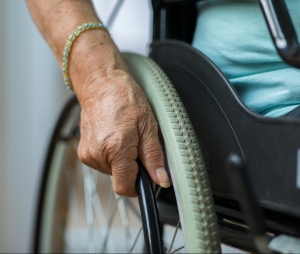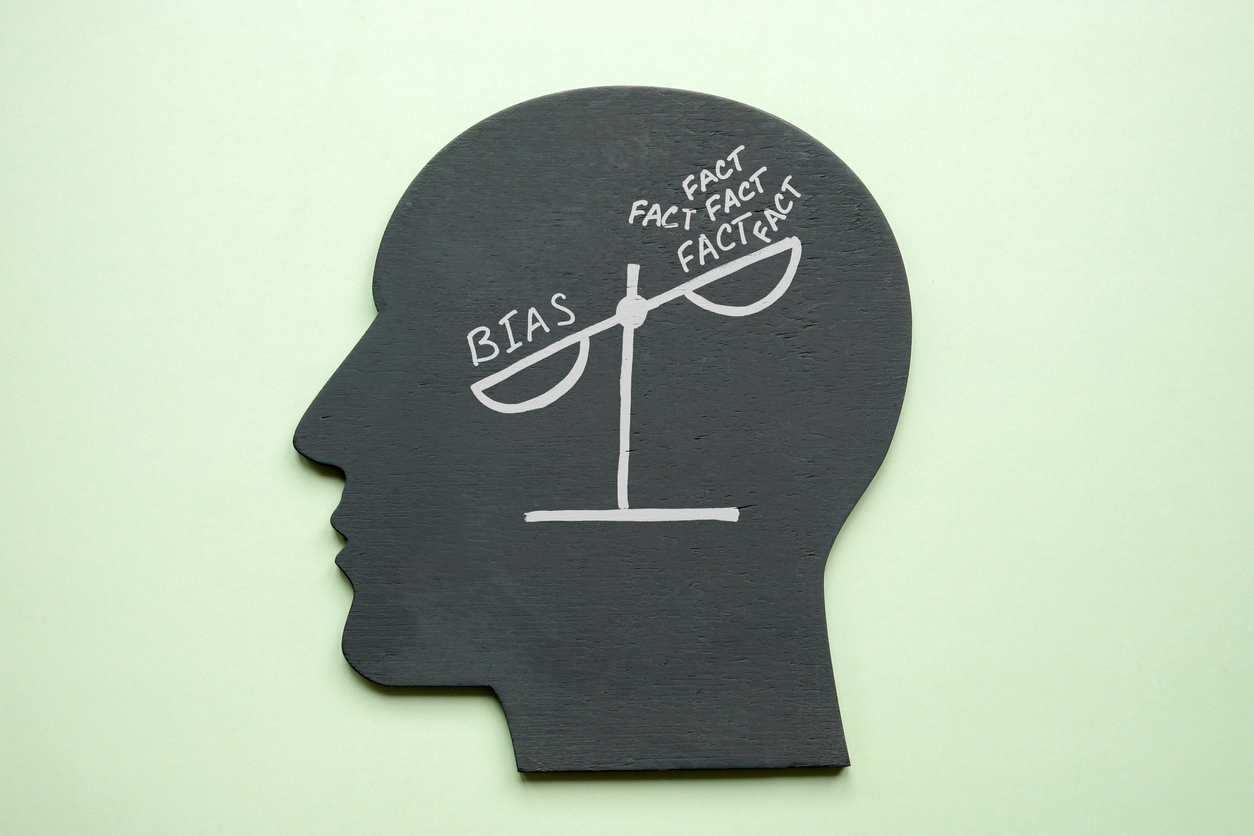Tips for how to speak up and speak out against discrimination in a medical setting

Kirsten Weir
The receptionist requests two forms of identification from you, yet the White person in front of you required no identification to be verified.
A nurse who uses a condescending tone of voice: “you people are all alike.”
A doctor who doesn’t listen to you: Having just told the doctor you have knee problems, he recommended that you walk 30 minutes every day.
Are they just having a bad day — or is it implicit bias?
Implicit bias is an attitude or belief based on stereotypes about a particular group. People aren’t aware of those biases; they happen automatically and unconsciously. Yet they affect a person’s decisions and behaviors. These biases can also affect interactions between people in medical settings, including hospitals or dialysis centers.
Implicit bias often comes out in the form of microaggressions, said Olufunke Awosogba, PhD, a psychologist at the University of Texas Southwestern Medical Center. “These aren’t clear and obvious forms of discrimination, but rather subtle jabs,” she said.
Encountering a steady stream of those jabs can take a toll. When people encounter implicit bias, they often have to stop and think: Did that person mean their statement to come off the way it sounded? Were they actually being rude, or am I overreacting? “It’s a mental burden for people to assess these not-so-obvious situations. In fact, it can actually be more of a burden than experiencing outright bias,” Awosogba said.
Besides causing stress and distress, implicit bias can lead to worse health outcomes. But by learning to recognize and address this sneaky form of discrimination, you can advocate for yourself and the loved ones in your care.
Implicit bias harms health
Unfortunately, everyone has implicit biases. Many different groups can be subject to implicit bias, including racial or ethnic groups, older adults, people with substance use disorders or mental health problems, people with obesity, members of the LGBTQ community, people with low incomes or little formal education, and those with disabilities.
people with substance use disorders or mental health problems, people with obesity, members of the LGBTQ community, people with low incomes or little formal education, and those with disabilities.
Implicit bias affects how people are treated in medical settings. Research has found, for instance, that White health care professionals often exhibit implicit bias against Black, Hispanic, and other patients of color. Other studies show that bias against people who are overweight or obese can lead to medical discrimination.
Implicit bias can directly affect medical care. One study, for example, found White medical students believed Black patients felt less pain, and therefore needed lower levels of pain medications, compared to White patients—a false belief that could lead to more discomfort for Black patients. Research also shows that implicit bias among medical providers leads to poorer communication, less empathy, and differences in the treatments they recommend.
Doctors who score high on tests to evaluate their implicit bias are more likely to dominate conversations and spend less time with patients. As a result, their patients trust them less and have more trouble remembering what the doctor told them. That could lead to confusion about their care and what they need to do to stay healthy. What’s more, people who are exposed to repeated discrimination might put off seeing their providers — or avoid seeking health care altogether, which can be particularly problematic for patients with kidney disease or kidney failure.
How to navigate discrimination
It can be hard to stand up to discrimination. Yet there are good reasons to push back against bias. Here are some tools you can use to make sure you’re respected as a person and a patient.
- Think it through: Before meeting with your health care team, take time to think about what you’d like to happen. For instance, do you like to know all the background details of your condition? Or do you just want to know the next steps? Would it be helpful to record the conversation so you can listen to your doctor’s directions again at home? Or would you like a printed summary to read over later?
- Set the tone: Once you know what you want from your health care team, be proactive about asking for it. This can be especially helpful when meeting a doctor for the first time. “Let your provider know what kind of patient you are, and what you need for a successful relationship,” Awosogba said.
- Address concerns: If you feel your health care team isn’t supporting you, your health can suffer. It’s important to speak up. “You might start your next visit by saying, “It’s important to me that I have a good relationship with those taking care of me. Is there something you need from me that will help you to help me?’” Awosogba suggested.
- Make requests: People with chronic kidney disease often see many different nurses or medical assistants for tests and treatments. It can be tiring to start from scratch each time. If there’s a provider you feel comfortable with, ask if you can arrange to see them regularly. It might not always be possible, but it’s worth a try.
- Pick your battles: Dealing with microaggressions over and over can be exhausting. Sometimes, you might decide it’s not worth the effort to push back or call someone out. If you don’t have the bandwidth to deal with a given situation on a given day, don’t feel guilty about putting it behind you. But if an interaction keeps weighing on your mind, consider what you need to move on. Would it help to discuss it with your provider, or with a loved one? Can you see a different doctor in the practice?
- Seek support: One of the trickiest parts about microaggressions is that it’s not always obvious. Talking with friends and family members can help you make sense of a troubling interaction. And speaking with others who have dealt with similar experiences might help you feel better.
Above all, it’s important for patients and caregivers to trust their experiences. “If we make it the norm to speak up, patients will become more empowered and the culture of our healthcare system will improve,” Awosogba said. “You’re the driver of your care, and it’s important that your voice be heard.”
This article was developed jointly by the American Psychological Association (APA) and Dialysis Patient Citizens Education Center as part of a partnership to educate dialysis patients and their families on the psychological and emotional aspects of managing kidney disease.
Check Your Bias at the Door: Tips for Health-care Providers
 Implicit biases are universal, but there are steps you can take to keep them in check:
Implicit biases are universal, but there are steps you can take to keep them in check:
- Get to know people as individuals. Ask questions and find ways to connect. When you realize what you have in common, you’re less likely to lump people into a group that’s “other” than you.
- When you start to think in terms of stereotypes, stop yourself and think of a counter example. If you find yourself assuming an older adult is forgetful, for example, think of an older adult you know who has excellent memory and thinking skills.
- Put yourself in your patient’s shoes. Are they dealing with stressful life situations that could be getting in the way of following the treatment recommendation? Consider their circumstances, not their identity.
- Plan ahead. Think about when you’re most likely influenced by implicit bias. When you’re rushing to get things done? When patients look different from you? Then make a plan for those situations. For example: When I meet with a patient of a different race, I’ll ask a question about their interests before discussing medical details.
Health care is a team sport. If you take time to engage with your patients, you’ll be more successful in working together to improve their health and wellbeing. That’s a win-win for providers and patients.
For more information, visit the implicit bias resources website created by the American Psychological Association.




